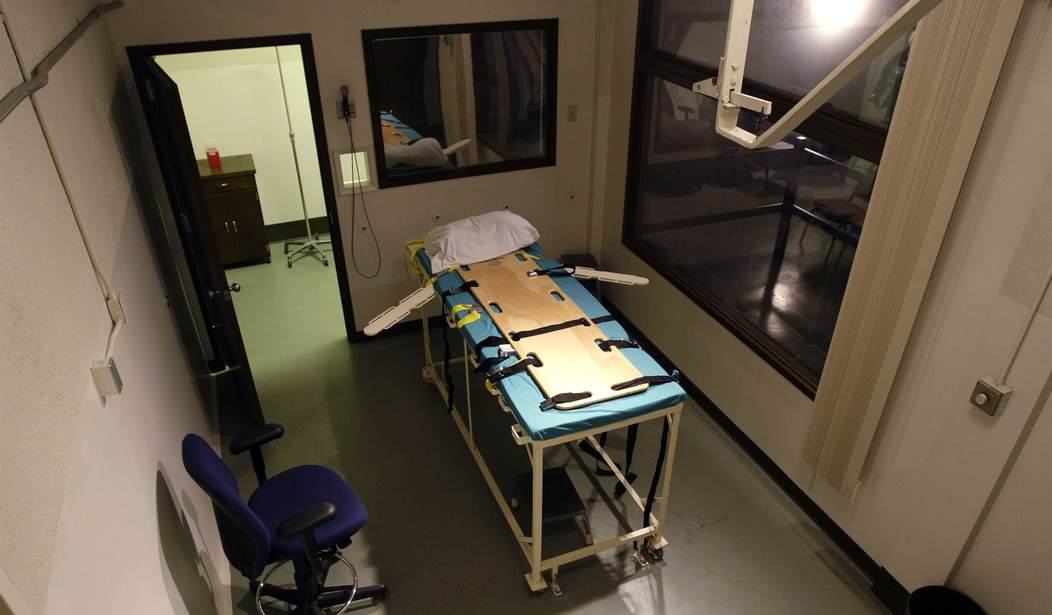Editor's note: This column was authored by Natalie Dowzicky.
After the El Paso gunman took the lives of 22 people, it’s no surprise that he now faces the death penalty. He’s been charged with federal domestic terrorism by county officials, who have gathered mountains of evidence indicating he’d been planning the attack for some time. Of course, it’s an unspeakable tragedy, and the punishment for such a heavy crime is fitting. As El Paso District Attorney Jaime Esparza told reporters on Sunday, “I know the death penalty is something very powerful, but in this occasion it’s something that’s necessary.” Esparza is right — the penalty is extremely powerful, and this is one case where a state is very clearly being just in wielding that power. Far too often, though, that’s not the case.
State governments execute significantly more people than the federal government. According to the Death Penalty Information Center, states have executed 1,497 death row inmates since the death penalty was re-instated in 1988. Back in 1999, the total number of state executions peaked at 99 for the year. During all that time, the federal government executed three people.
Some states exercise the penalty more than others — Texas is one of them. In the past two decades, the Lone Star State executed 273 inmates. Alabama, meanwhile, has the highest per-capita rate of death sentences in the country. For every 100,000 residents in Alabama, 9.5 people get sentenced to death.
Not all of these sentences will kill guilty people.
According to the National Academy of Sciences, if the people on death row were there indefinitely, one in 25 would be exonerated — and this is a conservative estimate. In most of the country, inmates on death row are more likely to die from illness, suicide, or old age than they are to be executed. But more than 4 percent of them don’t have a reason to be on death row in the first place. And, typically, courts don’t take up cases of innocence after the defendant has died, so it’s hard to get a definitive number on the real rates of errant executions.
Since 1973, this same state system released 166 criminals from death row when they were exonerated before their execution date — because of erroneous eyewitness identifications, false and coerced confessions, misconduct by police and prosecutors, inadequate legal defense, or false or misleading forensic evidence. The El Paso shooter was arrested on the scene of his mass-murdering spree, so these factors don’t really play a role. But when they do and no one notices or cares, innocent people die at the hands of a justice system that’s meant to protect innocent people.
Recommended
One way to fix this broken state system is to stop forcing poor people to rely on inept defense attorneys. But since almost no defendant can afford the exorbitant cost of a death penalty trial, relying on bad attorneys is all they can do. And states vary wildly in their requirements for state attorney performance when they’re representing potential murderers, and some states don’t have any standards at all. In fact, in some instances, the defendant’s representation has slept through court proceedings or shown up under the influence. As Justice Ruth Bader Ginsburg once said, “People who are well represented at trial do not get the death penalty.”
When Bill Barr recently announced the revival of the federal death penalty, there was public outcry. But where was all that frustration in the last two decades while states were putting people to death, left and right? To be sure, skepticism of the death penalty is long overdue, because not all cases are as clear-cut as the El Paso shooter’s. After all, there are times when it’s obvious that a defendant deserves death row — and there are times when it’s not and government should err on the side of caution in delivering such a heavy sentence. For the sake of the innocent people on death row, our states desperately need to learn the difference.
Natalie Dowzicky is a researcher a Washington D.C. think tank and a Young Voices contributor. Her work has appeared in the Washington Examiner, the American Conservative, the National Interest, Townhall.com, and more. Follow her on Twitter @Nat_Dowzicky.

























Join the conversation as a VIP Member